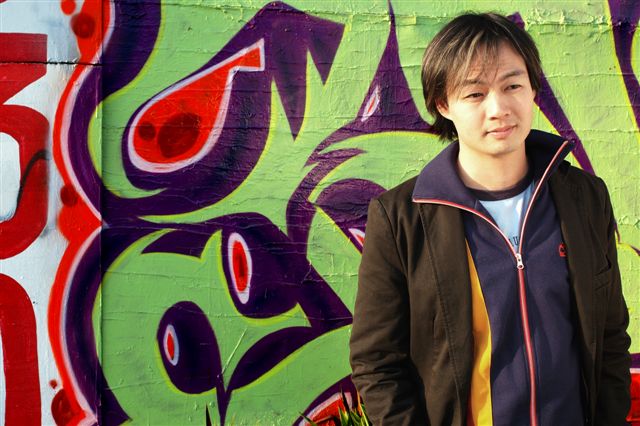Album Sneak Preview: Madokara Mieru
Surprise surprise! The second song on my album has already been released....sort of. It's called 'Madokara Mieru' (or 'Mado Kara Mieru') and the reason I say that it's sort of been released is because it's actually been covered even before the official release on Calling All Dawns. I know that sounds unusual, but here's the gist of it: Corner Stone Cues, a music library that does licensing of music for movie trailers, heard an early demo of the song and liked it so much that they thought they could license it for a variety of uses; movie trailers, sports coverage, etc. And so with my permission, they recorded their own version of the song, months before I recorded my own. Their version has been released on an album called Corner Stone Cues Presents: Eton Path, which is available on iTunes, Amazon, Walmart, and a number of other places. Already it's been licensed for use for the BBC's coverage of the Premiere League FA Finals and the Beijing Summer Olympic Games, so if you happen to be a British sports fan, you might have heard it already.
What are the differences between the two versions? Theirs was recorded by the London Studio Orchestra at AIR Lyndhurst. Mine was recorded by the Royal Philharmonic Orchestra at Abbey Road Studios. Theirs features a British choir and percussion. Mine features an LA based taiko group and a Northern California based choir. Mine also has slightly different orchestrations and arrangements. So all in all, they're not outrageously different.
But just for fun, I thought I'd post a clips from both versions so you could get a sneak preview of what's to come. Here's the intro from my Calling All Dawns version (and by the way, this is still a rough mix):
And here's the dramatic outtro from the Eton Path version:
As for the lyrics, it's sung in Japanese, and is based around a series of five Haiku, each corresponding to the changing seasons: spring, summer, autumn, winter and ending on spring. Each verse is sung by a singer in a different stage of their life; so a young girl sings the first spring verse, an adolescent girl sings about summer, an older woman sings about autumn, etc. The song ends with a return of the young girl singing about spring, therefore completing the cycle of the seasons. So in essence, it's a song about the cycle of life.
As for the lyrics, they are:
SPRINGmadokara mieru
(kagayaku) ume ichirin
ichirin hodo no
(sono) atatakasa
SUMMER
madokara mieru
(mabushii) me ni wa aoba
yama hototogisu
(aa) hatsugatsuo
AUTUMN
madokara mieru
(sawayaka) akikaze no
yama o mawaru ya
(ano) kane no koe
BRIDGE
yomei
ikubaku ka aru
[yo mijikashi]
WINTER
madokara mieru
(hieta) yuki no ie ni
nete iru to omou
(nete) bakari nite
SPRING
madokara mieru
(tanoshi) ichihatsu no
ichirin shiroshi
(kono) haru no kure
The translations to all these lyrics (with a nod to their authors) are:
Hattori Ransetsu:
Through the window I see
on the plum tree
one blossom, one blossom worth
of warmth
Yamaguchi Sodo:
Through the window I see
a view of greenery
a wild cuckoo
the first bonito
Kaga no Chiyo:
Through the window I see
the autumn wind
resounds in the mountain—
temple bell
Masaoka Shiki:
how much longer
is my life?
[A brief night…]
Masaoka Shiki:
Through the window I see
all I can think of
is being sick in bed
and snowbound….
Masaoka Shiki:
Through the window I see
this lone iris
white
in spring twilight
Special thanks to Ohgi Midorikawa, who helped me with the adaptation of the poetry!
(Note: the MP3 sample was updated 11/5/08, to reflect a more recent rough mix. To download the clips, click on the triangle to the right.)
Labels: Album

